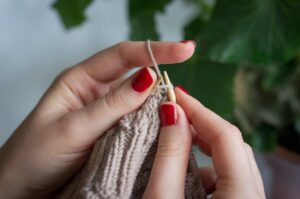Choosing others’ comfort OR choosing self
I have a library of personal stories in which I let others’ needs demands overrule my own. I’m not proud of them, certainly not happy about them, and aware that without them I would have never learned the lessons they taught: boundaries, self-care, self-esteem, sovereignty, and more. Of them all, the hardest one has been learning to use my voice; not speaking in and of itself, but speaking my truth without editing, censoring, holding back, or apologizing.
“When we speak we are afraid our words will not be heard or welcomed. But when we are silent, we are still afraid. So it is better to speak.” ~ Audre Lorde
She’s right, of course. But knowing this doesn’t make it easier. It’s scary to anticipate the fallout, the misunderstanding, even subsequent isolation and still speak, still write, still tell the truth, still articulate an opinion, still stand our ground.
What’s far easier, at least in the short run, is compromising. Saying just enough, but not upsetting anyone. Hinting at what we mean and then getting angry (usually with ourselves) when we’re not intuitively understood. And worst of all, saying what others want to hear or doing what others want, even and especially at our own expense.
When I look back at my many experiences and stories of such, what frustrates me most is how many times I felt like I had no choice; that I had to bite my tongue or censure my thoughts or tamp down my desires. I could not see a way to honor myself without someone else paying a price (or so I thought). And all of this without any recognition of the tremendous price I was paying over and over again.
It’s a false dichotomy – and an untenable one: either keeping others comfortable or honoring our very self.
We should never have to deliberate between compromising ourself, no matter how slightly, or paying a price for holding fast to what we know, believe, and feel. And yet we do – over and over and over again.
Ready for the good news in all of this?
When we inventory and acknowledge the times in which we’ve compromised, not spoken up, not told or lived our truth, not chosen ourself, these become the impetus to do nothing of the sort ever again! Our hardest experiences – past and present – are what enable us to change course; to reimagine and rewrite our story, then live into the one we desire and deserve. Our awareness is what enables choice – and change.
Do the risks, costs, or fears go away? Absolutely not. In some ways, they probably increase. But so does our strength and certainty and courage and sovereignty.
Yes, in retrospect, I might wish that I’d chosen myself sooner, that I’d trusted my voice earlier, that I’d nipped any form of compromise in the bud and in the moment. But I’m profoundly grateful for the gift of perspective – to witness my own growth and transformation; to feel the surge of strength, even joy, that comes when I do choose myself; to extend myself grace when that has not been the case – and may yet be again.
So, my invitation to you?
List out the stories you wish were not yours – the ones in which you compromised or stayed silent or said what others wanted to hear or sold yourself short or, or, or… Let yourself feel all the feels associated with each. And then stand back and look at you now – who you have become, what you have accomplished, how you have grown, what you now know and understand and believe about yourself that once felt like mist and shadow. That’s a story worth telling and living. That’s your story – complex and dramatic and challenging and amazing. And the awareness and appreciation of that story? That’s the reimagining and retelling and redeeming of stories that I’m talking about all the time. It changes everything.
*****
A tiny PS: One of the reasons I keep telling the story of Eve – and countless others – is because the common telling perpetuates the (wildly untrue) message that when women choose themselves, disaster befalls. It’s no wonder we compromise and comply and keep our truest desires to ourselves! This is why her story (and countless others ) must be reimagined and retold and redeemed. Ours, as well. And when they are? Yep: it changes everything. Mmmm. Let’s do that, yes?
 I go through seasons in which I take up either knitting or crocheting – another thing my mom taught me. I love the practice of it, the experience, the rhythm, the calm. It comes to mind right now – as it relates to unraveling.
I go through seasons in which I take up either knitting or crocheting – another thing my mom taught me. I love the practice of it, the experience, the rhythm, the calm. It comes to mind right now – as it relates to unraveling.